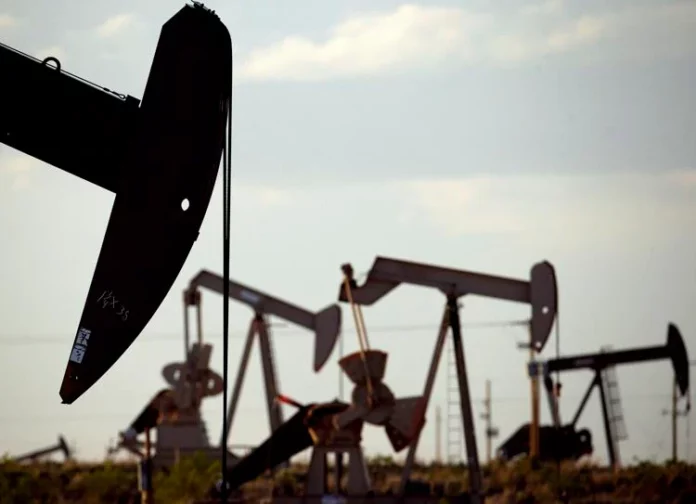
By Bethany Blankley | The Center Square contributor
A U.S. House Energy and Commerce subcommittee highlighted how the U.S. oil and natural gas industry is a global leader in clean energy production at a Wednesday hearing.
In a memo to members of the Subcommittee on Environment, Manufacturing, and Critical Material, Chairman Rep. Cathy McMorris Rodgers, R-Washington, highlighted the strength of the American energy industry.
“Blessed with tremendous natural resources and an economic system that fosters the free flow of capital to support its innovative and technological capabilities, the United States has developed and maintains the most sophisticated, efficient, and productive systems of energy production and delivery in the world,” she said. “Its vast and complex electricity systems deliver uninterrupted power to the public, manufacturers, and industry – all of which serve to provide the affordable, reliable energy, feedstock, and power necessary to expand and protect America’s economy, security, the environment, and the public welfare.”
The U.S. energy industry “has fostered world-changing entrepreneurial and innovative activity” that has driven economic growth, more efficient energy production, and reduced pollution, McMorris Rodgers notes. Over the last 50 years, combined air pollutant emissions dropped by 78%, according to the EPA. Emissions reductions occurred as the national GDP increased by 304%, vehicle miles traveled increased 183%, the U.S. population increased over 60%, and energy consumption increased 48%, she said.
McMorris Rodgers also cites reports showing how U.S. air quality levels are superior to those reported in countries worldwide, largely credited to the U.S. shale revolution, which “serves as a lesson in the benefits of American energy expansion and accompanying environmental benefits, including reductions in carbon dioxide emissions.”
“There are limits to what regulations accomplish without negative consequences, particularly as emissions standards push beyond technological and economic feasibility,” she argues, pointing to subcommittee reports. The subcommittee’s findings are similar to those first reported by The Center Square.
The U.S. oil and natural gas industry made accelerated progress in emissions reductions, according to an analysis published by the Environmental Partnership, The Center Square first reported. From 2011-2021, U.S. operators reduced methane emissions relative to production by 66% in the largest producing regions. The industry not only leads the world in oil and natural gas production, but “methane emissions from petroleum and natural gas systems have fallen,” the Partnership notes, because of “industry leadership, a motivated workforce and investment in new technologies.”
Mandi Risko with Energy In Depth told The Center Square, “It’s important to note that America’s leading oil and natural gas producers have successfully reduced total methane volumes in each major producing basin over the last five years while simultaneously achieving record production.”
Risko also points to data published by the EPA’s Greenhouse Gas Reporting Program, which shows that between 2018 and 2022, total methane emissions volumes in each oil and natural gas producing basin in the U.S. declined significantly across the board. The Anadarko Basin (located in Oklahoma, Texas, and Kansas) saw the largest decrease in total volume of emissions, the group notes, reducing greenhouse gas emissions by 77% over five years.
“Notably, operators were able to reduce absolute methane emissions while increasing domestic production to record levels,” Risko said. “It is possible to have energy security and reduce emissions – a fact the U.S. oil and natural gas industry continues to demonstrate.”
Texas-based organizations also argue companies in the Permian Basin produce some of the cleanest natural gas in the world. A recent Texans for Natural Gas report found that among the top 12 oil and natural gas producing countries, if Texas and the Permian Basin were their own countries, they’d rank 10th and 13th, respectively, for having the lowest flared volumes. Russia has the greatest volume, followed by Iraq and Iran.
From 2011 to 2021, methane emissions intensity in the Permian Basin fell by more than 76% as production increased by over 345%, the report found. It also fell by 20% from 2020-2021, according to the Texans for Natural Gas analysis.
To put this in perspective, the Permian Basin accounts for nearly 40% of all oil production and nearly 15% of natural gas production in the U.S.
“The increase of more affordable natural gas in electric generation especially helped the United States achieve the largest absolute reduction in carbon dioxide emission of all countries in the world,” McMorris Rogers added, which reshaped world energy markets.
The Center Square first reported that the Texas natural gas industry provided a lifeline to European countries with nearly 75% of all U.S. exports going to Europe in the first of half of 2022. By the first half of 2023, the U.S. exported more natural gas than in any other previous six-month period, led by Texas and Louisiana. U.S. petroleum exports also set a new record in the first half of 2023 with record production coming from the Permian Basin.
Despite this progress, the Biden administration is forging ahead with another round of federal agency rules to restrict pipelines, natural gas infrastructure, and offshore production, among others, E&E News by Politico reports. This includes implementing ESG guidelines through federal agencies “to distinguish relatively climate-friendly fuel producers and exporters from their more high-emitting competitors,” and the Securities and Exchange Commission “readying rules that would require publicly traded companies and government contractors to report on direct and indirect greenhouse gas emissions, including methane, from their supply chains.”
The Biden administration is playing a key role in the 28th session of the Conference of the Parties to the UN Framework Convention on Climate Change, which begins Thursday. For roughly two weeks, global leaders, including 70,000 attendees, will be focused on “accelerate global climate action.”
Republished with the permission of The Center Square.













